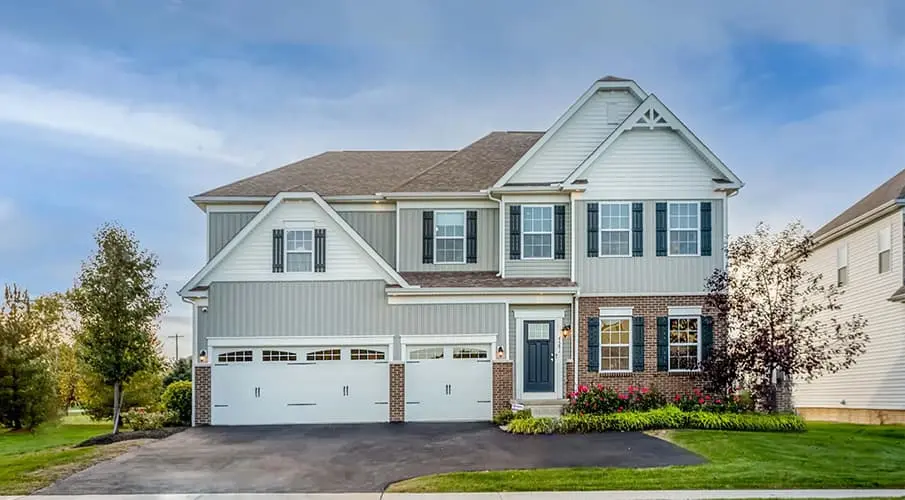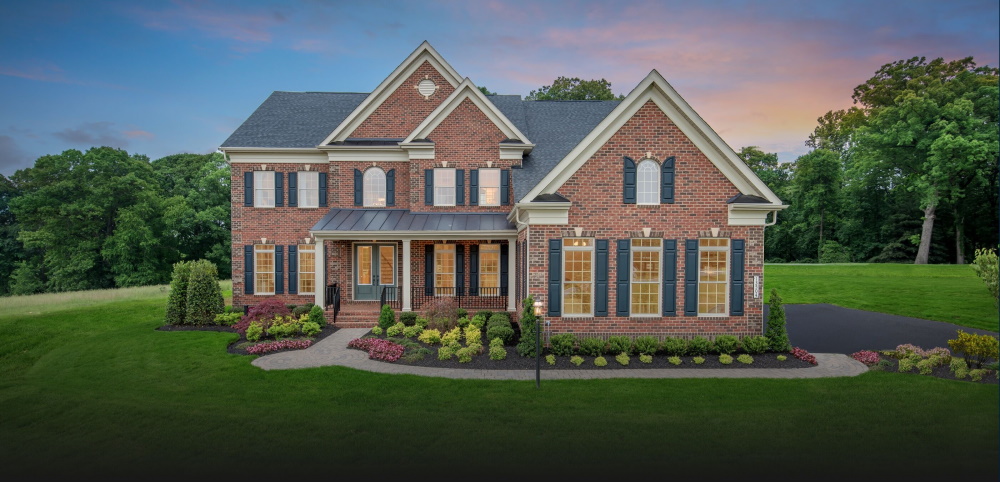What Are Foreclosures and REO Properties?
DIPA/ Getty Images

Homebuyers can find themselves a discount rate by purchasing a foreclosure. This process typically entails looking for a home that's been foreclosed on by the bank since the owner had financial difficulty.
There are numerous methods to find these residential or commercial properties, and numerous things you'll want to know about discovering the ideal agent to help you. First, we'll share how homes wind up in foreclosure.
- Foreclosures and REO residential or commercial properties are homes that banks have reclaimed from borrowers who could no longer pay their mortgages.
- Banks are often eager to move these residential or commercial properties, so they can represent an opportunity for a great deal when you are buying a home.
- There are a number of methods to find foreclosures or REO residential or commercial properties, however the finest option typically is to deal with a buyer's representative.
- Check out all of the costs included before you sign a contract, as these can amaze you on REO residential or commercial properties.
What Are Foreclosures and REO Properties?

Banks own realty due to the fact that they have gotten the residential or commercial properties through foreclosure. A foreclosure takes place when a homeowner is not able or refuses to pay their mortgage payments. When that takes place, the loan provider that backed the mortgage reclaims the home, given that the residential or commercial property is security for the loan.
Once repossessed, the lender-typically a bank-will auction off the residential or commercial property in hopes of recouping the losses it incurred when the property owner missed out on payments. If the home fails to offer in the auction, it goes on the bank's books and is referred to as a "realty owned" (REO) residential or commercial property. A home may stop working to offer because nobody showed up to bid the minimum amount of the existing mortgage or due to the fact that the bank began the minimum quote so high that nobody would touch it.
Why Buy Bank-Owned Homes?

If a bank is wanting to recover its losses on the foreclosed residential or commercial properties, why would there be excellent deals? There are two reasons why an REO home can be rewarding for you:
First, if two loans were secured to the residential or commercial property (which prevails nowadays), the second loan provider sometimes does not foreclose. If the second loan provider does not comprise the back payments to the very first lending institution and starts its foreclosure proceedings, the second loan provider gets cleaned out in the foreclosure.
Second, the bank often does not desire to rest on its stock.
Since it did not get its minimum quote from a financier or property buyer during the foreclosure sale at the courthouse, there's a good chance that the bank may price that REO home for a significant discount rate to eliminate it.
How to Find Foreclosures and REOs
To discover foreclosures and REOs, you can take on the job and find them on your own. Alternatively, you can hire a purchaser's representative.
Locate REO Listing Agents by yourself
There are numerous places offered online to discover foreclosures. One of the finest is on a several listings service (MLS), which helps connect buyers, sellers, and brokers. Search the MLS for "REOs" to find agents in your area who specialize in REOs. Once you identify some high-potential listings, it's time to begin reaching out.
There are numerous things you'll would like to know about REO noting representatives:
Focused activity: Most REO noting agents list only REOs, not other types of residential or commercial property.
Dual company: REO noting agents generate income by either selling a great deal of REOs or running as dual agents. Under dual company, the REO listing representative will make both the listing commission and the purchaser's representative's commission.
Commission: To attract purchaser's agents, numerous banks offer a larger commission portion to the buyer's representative while marking down the listing representative's commission.
Representation: REO noting agents generally represent sellers, not buyers.
Relationship: REO listing representatives are usually top-producing representatives because of the volume of service they conduct. They normally do not invest a lot of time working with buyers and will probably not participate in much hand-holding.
Communication: Some REO listing representatives are so busy that they work with assistants to field calls. Many do not offer their contact number, which can make communication hard.
A Better Option: Hire a Purchaser's Agent To Represent You
Unless you have direct experience working out with banks, you might get better representation by employing your own buyer's agent. Before choosing a representative, choose numerous and interview them to find a good fit.
Here are a few things you'll want to know about buyer's agents:
Fiduciary task: A buyer's representative has a fiduciary responsibility to protect your interests.
Representation: A purchaser's agent does not represent the seller, even when the seller is paying their commission.
Costs to you: The seller usually pays the purchaser's agent. It typically does not cost you to employ a purchaser's representative.
Broker contract: The buyer's agents may ask you to sign a purchaser's broker arrangement, which will specify the agent's tasks and designate who pays the commission.
Agent experience: Consider working with a purchaser's agent who has experience dealing with REOs.
Negotiating Tips for Buying a Bank-Owned Home
Once you have actually located some listings of interest and discovered yourself a purchaser's representative, you're all set to move to the next action: contacting the bank.
If the home listing is fairly new to the marketplace, it is possible the bank will not deviate much from its asking price. You will have higher negotiating power if you make offers on homes that have actually been on the marketplace for more than thirty days.
If you are going for a specific rate that would make the REO a great offer, don't hesitate to ask for it. You have substantial leverage. On top of the residential or commercial property being foreclosed on, it failed to cost the auction. The agent or agent you are handling is there to get the sale done.

During this procedure, you must anticipate the following:
An as-is purchase: You will likely be asked to purchase the home "as is," and it may or may not remain in good shape. Make your deal topic to a home assessment.
A waiting game: You could find yourself waiting a while when handling the bank. After prequalifying for a loan, you might be kept waiting for 10 days for the bank to react to your offer. If the bank will not budge, and you receive an offer rejection, wait another thirty days and after that resubmit your initial deal.
Unexpected Costs of Buying a Bank-Owned Home
Beware that you might encounter unanticipated fees during the deal.
Note
Keep in mind that the bank might likewise run the deal in a different way from how you would experience in a non-foreclosure home purchase.
Banks work out bulk-rate discounts with title and escrow business. If you elect to utilize the bank's title and escrow company, check the costs that those companies will charge you. Generally, costs not paid by the bank but paid by the buyer will be higher. That's since title and escrow often offset those discount rates by charging buyers more.
Expect the bank to prepare a purchase contract or addendum to your standard purchase agreement. Read it completely, and ask a genuine estate lawyer for guidance if you do not understand it. You can bet that the bank's legal representative prepared that contract, and it's not most likely in your favor.
Finally, some banks will not sign a counteroffer till all terms are mutually agreed upon verbally between the celebrations.
Frequently Asked Questions (FAQs)
What's the difference in between a HUD foreclosure and an REO foreclosure?
A HUD foreclosure is essentially the like any other REO foreclosure, however the mortgage that covered the home was backed by the government. That alters the foreclosure procedure a bit, although the essential functions of the process are the exact same. When a foreclosed home was purchased with a government-backed loan, the REO foreclosure is noted on the HUD Home Store.
How do I know what to spend for an REO foreclosure?
Similar to any home, you can provide to pay whatever you think is reasonable for an REO foreclosure, but there may be another purchaser who is prepared to pay more. That's why it can help to deal with a good purchaser's representative. If an agent thinks a residential or commercial property is within a rate variety you're comfy with, then they can assist you place a competitive quote.
Urban Institute. "The Impacts of Foreclosures on Families and Communities." Page 8.
Federal Reserve Bank of New York. "Distressed Residential Real Estate: Dimensions, Impacts, and Remedies." Page 20.
Missouri Law Review. "The Foreclosure Purchase by the Equity of Redemption Holder or Other Junior Interests: When Should Principles of Fairness and Morality Trump Normal Priority Rules?" Page 7.
National Association of Realtors. "Multiple Listing Service (MLS): What Is It."
National Association of Realtors. "Agency."
National Association of Realtors. "Fiduciary Duties."
National Association of Exclusive Buyer Agents. "What Is an Exclusive Buyer-Broker Agreement?"
Federal Housing Finance Agency Office of Inspector General. "An Introduction of the Home Foreclosure Process." Page 14.
Washington State Department of Financial Institutions. "Consumer's Guide to Title Insurance and Escrow Services."
Consumer Financial Protection Bureau. "My Loan Officer Says That I Can't Look For a Mortgage Loan and Receive a Loan Estimate Until I Can Provide a Copy of a Signed Purchase Contract.






